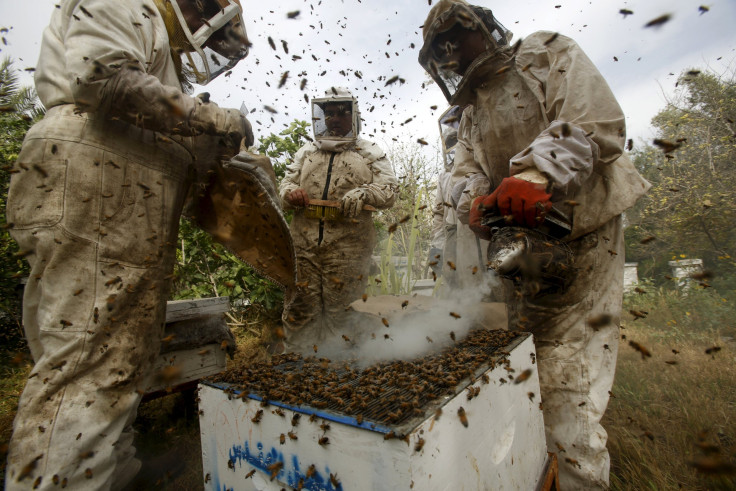Bee semen fights off pathogens, may be used in medicine

Australian scientists have found proteins in bee semen that may be used to make medicines for pathogens that threaten bee population. Proteins in bee seminal fluid can fight off pathogens almost immediately even when the male bees had never encountered any threat.
The study, published by the University of Western Australia's Centre for Integrative Bee Research (CIBER), investigated how male honey bees respond to infections with the fungal parasite Nosema apis. It is carried in the bee semen.
Previous studies have shown bee semen to possess anti-microbial properties and how they can carry an immune response to fight off parasites and diseases. CIBER experts analysed how sick males defended themselves against the virus.
Lead author Dr. Julia Grassl described the complex characteristic of the immune system in the seminal fluid surrounding honey bee sperm as “remarkable.” She added that the proteins that created the immunity in the semen may be used to develop natural medication to treat parasite-infected bee hives.
“For us the next step is having to actually look into these individual proteins that we found to respond. And see whether we can somehow utilise them to develop medications,” Grassl told the ABC.
The research is vital in developing new and improved treatments for bees to preserve world bee population. The new findings are also highly relevant for the Australian beekeeping industry. They may also lead to breeding of more disease-tolerant bees in future.
“We already knew that substances in bee semen were able to recognise and kill Nosema apis very efficiently. However, it is surprising how quickly sick males can activate an efficient response to protect their sperm and ultimately the queen against the disease during mating,” Grassl said in a statement.
The past 20 years has seen a dramatic decline in bee population worldwide as a result of bee exposure to pesticides, parasites and other bee diseases. However, Western Australia still has some of the healthiest honey bees in the world mainly because of tough biosecurity measures, geographic location and banning of pesticide use on hives.





















